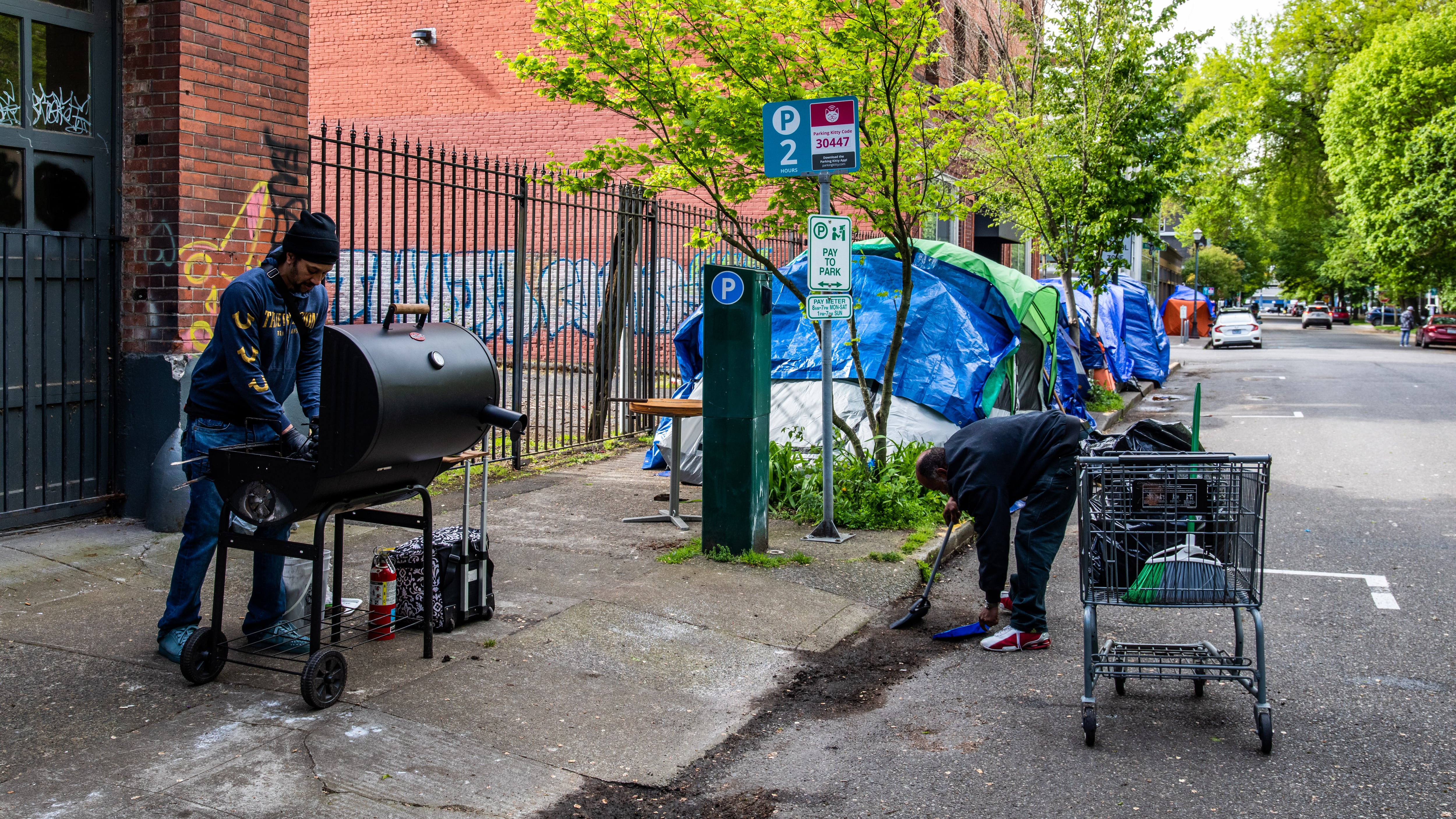Last fall, a group of Portlanders with disabilities sued the city of Portland over street camping, alleging the city was violating the Americans with Disabilities Act by allowing homeless people to block sidewalks.
The two parties, after months of negotiations, appear to have reached a settlement. And next week, the Portland City Council will vote on whether to approve it.
The details of the agreement aren’t clear, but one of the plaintiffs, Tiana Tozer, wrote in an email Tuesday morning that the settlement is “not everything we wanted, it won’t happen overnight, but we are confident that it will help people with disabilities get a faster response when sidewalks are blocked, and eventually deter camping on the sidewalks.”
Update, Thursday, May 25: The terms of the tentative agreement appear favorable to the city. They include: the city prioritizing the clearing of sidewalk-blocking camps and setting up a hotline to report such campsites (the city already operates an online portal for that purpose); the city allocating at least $3 million annually to remove tents; the city publishing annual reports to track its compliance with the settlement; and each plaintiff receiving $5,000 and reimbursement for attorney fees.
Tozer requested that everyone in support of the plaintiff’s requests show up at City Hall for the vote May 31 since “homeless advocates have outnumbered us at past council meetings, and we need to show the city of Portland that we are the majority, and we expect them to respect our rights as valuable members of the Portland community.”
To approve the settlement as an emergency order next week that would take effect immediately, the council would have to vote unanimously. If one commissioner dissents, the settlement will get a second hearing and not be treated as an emergency order. If it passes at the second hearing by a simple majority, the order would take effect 30 days after the vote.
The settlement comes at a time when Portland Mayor Ted Wheeler is pursuing a variety of ways to reduce camping. Wheeler is trying to establish six large sanctioned encampments across the city, each with capacity for 250 people. And he plans to ban daytime camping on city property, a goal that has no clear plan for enforcement. It’s unclear if either of the mayor’s initiatives are part of the settlement agreement the council will vote on next week.
The attorney representing the plaintiffs in the ADA lawsuit, John DiLorenzo, did not immediately respond to requests for comment.
